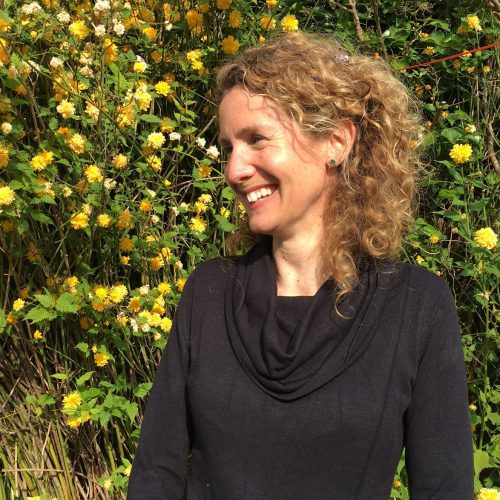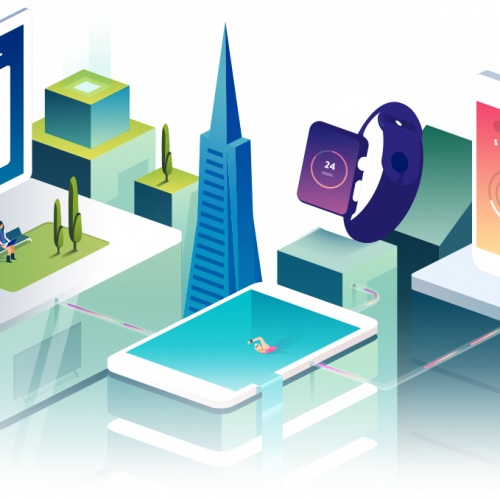We’re pleased to announce that Giki, the app designed to make sustainable shopping simpler is now available on Android.
By awarding badges to products based on how ethical, sustainable or healthy they are, Giki has already helped thousands of users to make better choices – and with the iOS version of the app also seeing some smart improvements, it should help thousands more.
In the few months since it’s official release, Giki has been helping consumers make decisions about the products they’re buying. But as well as this, the app has also been gathering two other valuable things, data and user feedback.
For James Hand, co-founder of Giki, having spent a 20-year career in fund management in the city, data is what he thrives on. Implementing Mixpanel into the Giki app alongside Firebase has given James a deeper insight into user behaviour, allowing him to see patterns emerge and where improvements could be made.
As well as this data, feedback from app users over the initial few months of its release gives further insight on which to base decisions on where to focus improvement efforts.
It is these two areas of insight, as well as a ‘bucket of love’ (we’ll come onto that later), that have helped shape this new release.
A badge for palm oil
The issue of palm oil, and our increasing global reliance on it, has been a personal point of interest for some time for founders James and ex-journalist Jo. Their vision for Giki is to give consumers all of the information they need in order to make better choices about the products they buy or use. So, considering the huge environmental and social impact that palm oil production can have, it seems only right that the Giki app should be able to inform users if products do contain palm oil.
However, there is an inherent difficulty involved in finding out whether; a) products contain palm oil (there can be several different names under which is can appear in ingredients lists and; b) the palm oil contained in products is from sustainable sources. In fact, Greenpeace’s Annisa Rahmawati says “Palm oil is too difficult a commodity to expect consumers to make conscious decisions on”. This, together with the sheer ubiquity of palm oil in products presents Giki with a fantastic opportunity to lead the way in helping to inform consumer and effect fundamental change.
Giki’s threshold for sustainable palm oil is based on data reported to The Roundtable on Sustainable Palm Oil (RSPO) by companies about palm oil they procure. You can find more detail here.
As a result of these challenges, it meant that a lot of work and preparation had to be done before that all-important palm oil badge could be added to the app, and the reason why it wasn’t added to the initial release.
The new palm oil badge is awarded to products containing palm oil that comes from sustainable sources. By also pulling in brand and company information, the app can make a decision based on brand values and reputation, whether the palm oil is sustainable. If a product contains non-sustainable palm oil, a badge is shown but not awarded and the user has the opportunity to see what alternatives there may be.
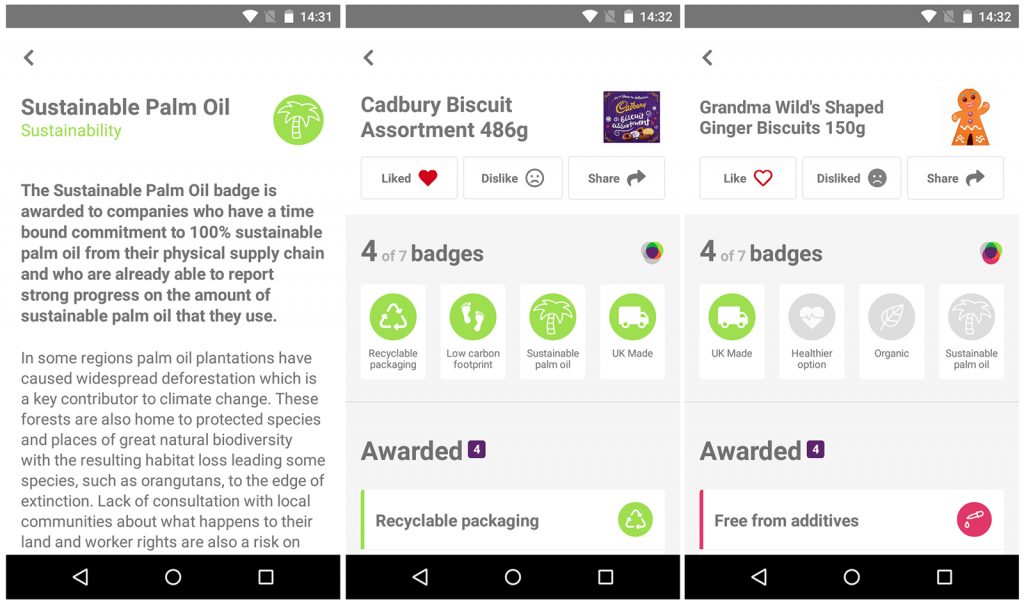
Even more data
Up until now data from the UK’s biggest supermarket, Tesco, proved more difficult to come by, however for this new release we’ve upgraded the backend to include data on thousands of Tesco products. Great news for users, it means they’re now able to analyse a lot more products and get even more accurate product information too.
A better user experience
Up until now, users could favourite products that they liked, however user feedback suggested that they not only care about saving the products they like, but also having a say on the ones they don’t like. In this new release, Giki users will be able to ‘like’ or ‘dislike’ products, allowing them to build up a more useful library of preferred products, whilst reminding them of products they may want to avoid.
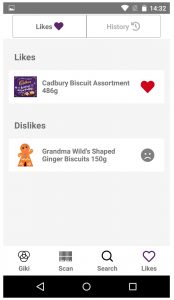
This of course also allows founder James to gauge and track opinion more efficiently and provides him with an even more valuable data set, one which over time maps sentiment towards products and paints a picture of purchasing habits.
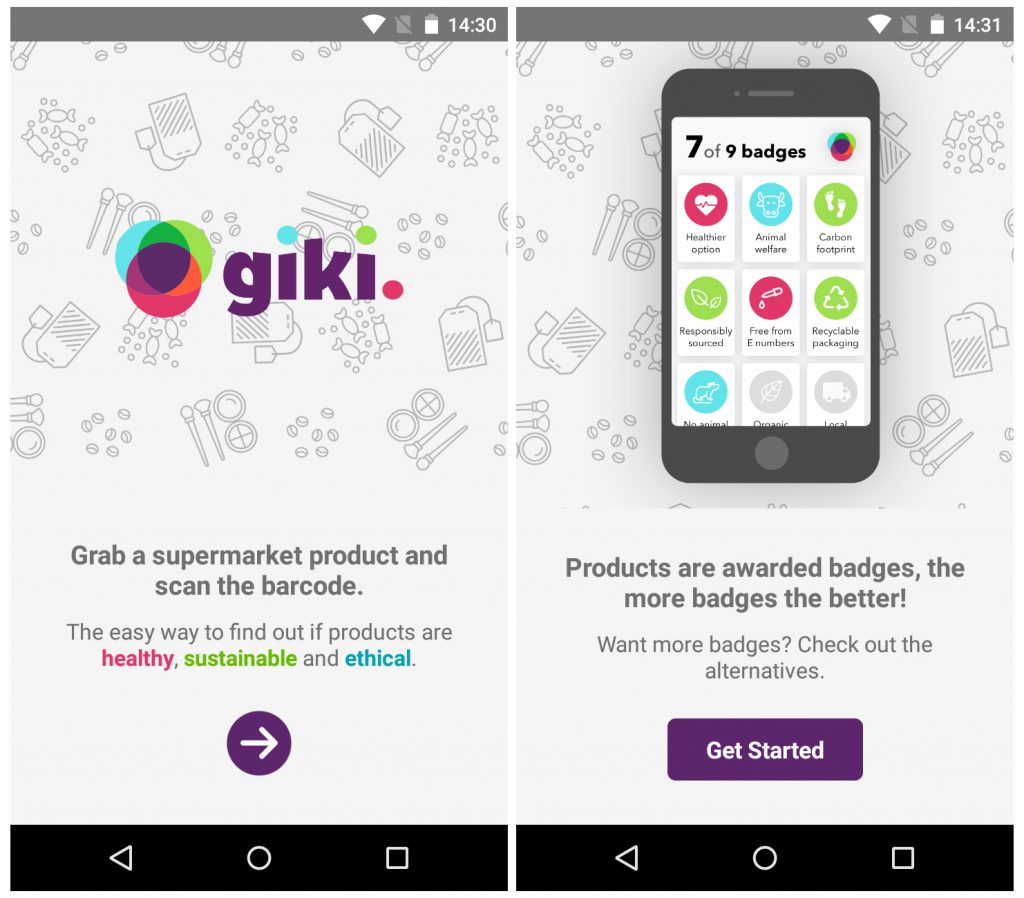
We also made some changes to the onboarding process based on the data we had for how people were engaging with the app. Streamlining the processes makes for a much easier onboarding for the user.
The bucket of love
For every project we work on, there’s usually a list of features or ideas we like to call the ‘bucket of love’, it allows us to log not just additional features but also big ideas that may work further into the product lifecycle. Throughout the Giki development process, founders James and Jo had contributed some great feature ideas.
What was great during this sprint is that James had done an incredible job in creating a clear spec for what he wanted, meaning we could develop features much more quickly and efficiently. As a result we had time left over that we could devote to the ‘bucket of love’, adding additional features that only significantly improved the app, but had the added value of giving James a much deeper view into the raw data – a huge benefit for Giki’s future campaigns.
our palm oil badge is a UK first and great for finding products with sustainable palm
For James Hand, these updates and getting the app into the hands of Android users are exciting steps forward for Giki, he says, “The technology has moved fast – now we have Android, which is fantastic – and our palm oil badge is a UK first and great for finding products with sustainable palm.’ Co-founder Jo is equally excited about the potential of this new release, “We have completed some fascinating research into chemicals of concern in haircare, make-up and children’s bath products. We found that many products do contain irritants, and a minority contain potential carcinogens. But the good news is there are many products available that are free from chemicals of concern.”
Find out more about the products you’re buying by downloading the new Giki app.
To apply for investment for your early-stage startup, just fill out this application form.

